-
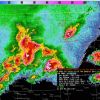 +28 +1
+28 +1Quantum processor swapped in for a neural network
It's become increasingly clear that quantum computers won't have a single moment when they become clearly superior to classical hardware. Instead, we're likely to see them becoming useful for a narrow set of problems and then gradually expand out from there to an increasing range of computations. The question obviously becomes one of where the utility will be seen first.
-
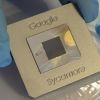 +16 +1
+16 +1How Much Has Quantum Computing Actually Advanced?
Lately, it seems as though the path to quantum computing has more milestones than there are miles. Judging by headlines, each week holds another big announcement—an advance in qubit size, or another record-breaking investment.
-
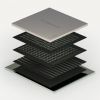 +25 +1
+25 +1IBM Reveals Quantum Computing Leap With 127-Qubit Processor
IBM has revealed its latest and most powerful quantum processor, and it represents a key breakthrough in the quantum computing industry. Dubbed Eagle, the 127-qubit processor becomes the first of its kind to deliver more than 100 qubits. To illustrate just how powerful quantum computing systems are, it’s been a requirement until recently that their qubits have to be cooled at temperatures as cold as outer space.
-
 +31 +1
+31 +1China's New Quantum Computer Has 1 Million Times the Power of Google's
It appears a quantum computer rivalry is growing between the U.S. and China. Physicists in China claim they've constructed two quantum computers with performance speeds that outrival competitors in the U.S., debuting a superconducting machine, in addition to an even speedier one that uses light photons to obtain unprecedented results, according to a recent study published in the peer-reviewed journals Physical Review Letters and Science Bulletin.
-
 +23 +1
+23 +1Two Chinese teams claim to have reached primacy with quantum computers
Two teams in China are claiming that they have reached primacy with their individual quantum computers. Both have published the details of their work in the journal Physical Review Letters. In the computer world, quantum primacy is the performance of calculations that are not feasible on conventional computers—others use the term "quantum advantage."
-
 +22 +1
+22 +1An Ultra-Precise Clock Shows How to Link the Quantum World With Gravity
The infamous twin paradox sends the astronaut Alice on a blazing-fast space voyage. When she returns to reunite with her twin, Bob, she finds that he has aged much faster than she has. It’s a well-known but perplexing result: Time slows if you’re moving fast.
-
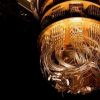 +24 +1
+24 +1Otherworldly 'time crystal' made inside Google quantum computer could change physics forever
Researchers working in partnership with Google may have just used the tech giant's quantum computer to create a completely new phase of matter — a time crystal. With the ability to forever cycle between two states without ever losing energy, time crystals dodge one of the most important laws of physics — the second law of thermodynamics, which states that the disorder, or entropy, of an isolated system must always increase.
-
 +23 +1
+23 +11st 'atom tornado' created from swirling vortex of helium atoms
Not much is known about the vortex beams’ properties at the moment, but scientists plan to learn more by crashing them into other particles.
-
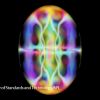 +14 +1
+14 +1Quantum gas free-falls its way to a low-temperature record
A cloud of rubidium atoms is said to have achieved the coldest temperature yet after being dropped from the top of a tower.
-
 +21 +1
+21 +1Shanghai scientists set space teleportation record
It first hit our television sets on Sept. 8, 1966. The television show was called Star Trek, and, it featured a bold group of space travellers aboard the starship Enterprise. It was then that we were formally introduced to teleportation — a cool concept that allowed the ship to beam people and things to any coordinate.
-
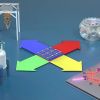 +14 +1
+14 +1Researchers find a way to check that quantum computers return accurate answers
Quantum computers are advancing at a rapid pace and are already starting to push the limits of the world's largest supercomputers. Yet, these devices are extremely sensitive to external influences and thus prone to errors which can change the result of the computation. This is particularly challenging for quantum computations that are beyond the reach of our trusted classical computers, where we can no longer independently verify the results through simulation.
-
 +25 +1
+25 +1NSA: We 'don't know when or even if' a quantum computer will ever be able to break today's public-key encryption
America's National Security Agency has published an FAQ about quantum cryptography, saying it does not know "when or even if" a quantum computer will ever exist to "exploit" public-key cryptography. In the document, titled Quantum Computing and Post-Quantum Cryptography, the NSA said it "has to produce requirements today for systems that will be used for many decades in the future."
-
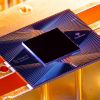 +22 +1
+22 +1Google researchers made a time crystal inside a quantum computer
A unique phase of matter called a time crystal, which can in theory flip between two configurations forever with no energy input necessary, has been created inside a quantum computer built by Google. It is one of the first real-world problems solved by a quantum computer, and could also be harnessed to improve them.
-
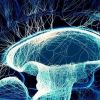 +14 +1
+14 +1Is Consciousness Bound by Quantum Physics? We're Getting Closer to Finding Out
One of the most important open questions in science is how our consciousness is established. In the 1990s, long before winning the 2020 Nobel Prize in Physics for his prediction of black holes, physicist Roger Penrose teamed up with anesthesiologist
-
 +19 +1
+19 +1Highly programmable quantum simulator operates with up to 256 qubits
Physicists have demonstrated a large-scale, programmable quantum simulator, featuring a precisely-arranged two-dimensional array of 256 quantum bits (qubits). Designed by a team headed up at Harvard University, the system uses arrays of highly focused laser beams to trap individual atoms and drag them into desirable arrangements.
-
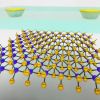 +26 +1
+26 +1For The First Time, Scientists Have Connected a Superconductor to a Semiconductor
Scientists have succeeded in combining two exciting material types together for the very first time: an ultrathin semiconductor just a single atom thick; and a superconductor, capable of conducting electricity with zero resistance.
-
 +23 +1
+23 +1Quantum Computing: The Cause of the Next Crypto Crash
The notion that a quantum computer might someday break bitcoin is quickly gaining ground. That’s because quantum computers are becoming powerful enough to factor large prime numbers, a critical component of bitcoin’s public key cryptography. Quantum computers rely on what is known as Shor’s algorithm to achieve this feat. Shor’s algorithm dramatically shortens the time required to solve factorization problems. It's also tailor-made for quantum computing, as it exploits the "superposition" of states used in quantum computing.
-
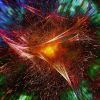 +17 +1
+17 +1Researchers build first modular quantum brain sensor, record signal
A team of scientists at the University of Sussex have for the first time built a modular quantum brain scanner, and used it to record a brain signal. This is the first time a brain signal has been detected using a modular quantum brain sensor anywhere in the world. It's a major milestone for all researchers working on quantum brain imaging technology because modular sensors can be scaled up, like Lego bricks.
-
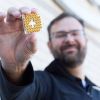 +26 +1
+26 +1Hacking bitcoin wallets with quantum computers could happen – but cryptographers are racing to build a workaround
Within a decade, quantum computers are expected to be able to hack into cell phones, bank accounts, email addresses, and yes, bitcoin wallets.
-
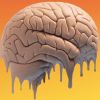 +17 +1
+17 +1Some Scientists Believe the Universe Is Conscious
Sounds like a bad trip ... but what if it's true? In upcoming research, scientists will attempt to show the universe has consciousness. Yes, really. No matter the outcome, we’ll soon learn more about what it means to be conscious—and which objects around us might have a mind of their own.
Submit a link
Start a discussion




















